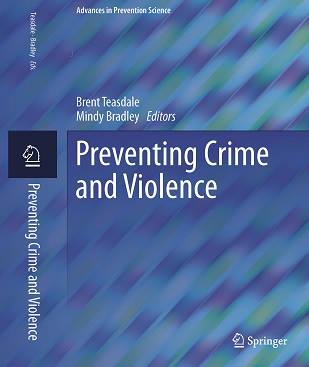
Mindy S. Bradley, an associate professor in the Department of Sociology and Criminal Justice in the J. William Fulbright College of Arts and Sciences, recently published a book focusing on integrating criminology into prevention science research.
Her book, titled Preventing Crime and Violence, offers an explanation of how the practices used in criminology can be helpful to those studying prevention science by providing a better understanding of crime prevention and risk factors.
The book also offers evaluations of familial, societal and criminal justice crime deterrence methods that not only detail a wide range of effective techniques, but also provide proof for why they succeed.
"My book aims to show how high-quality, theoretically-informed research improves decision-making, results in better programming, generates more cost savings to the public, and leads to better outcomes for the persons involved," Bradley said.
Bradley said that although prevention science can easily identify key crime risk factors, it cannot distinguish between causal risk factors and factors that are simply coincidental or causally correlated. Prevention science has yet to explain why certain factors are related to crimes.
However, according to Preventing Crime and Violence, explanations of these key crime factors are at the core of criminology. Bradley said she believes that integrating criminology can help because doing so offers explanations of how and why certain risk factors cause offenses. So essentially, criminology outlines the prevailing causal processes that tie risk factors to outcomes.
Springer, the book's publisher, stated, "Preventing Crime and Violence will enhance the work of researchers, practitioners, academicians, and policymakers in public health, prevention science, criminology, and criminal justice, as well as students interested in criminology and criminal justice."
Anna Zajicek-Wageman, U of A chair and professor of sociology and criminal justice, said Bradley's book, "makes a critical contribution to the field of criminology, and opens the way for better crime prevention - which is essential to our society and the generations to come."
Contacts
Megan Cordell, communications intern
J. William Fulbright College of Arts and Sciences
479-575-4393, mcordell@email.uark.edu
Andra Parrish Liwag, director of communications
J. William Fulbright College of Arts and Sciences
479-575-4393, liwag@uark.edu